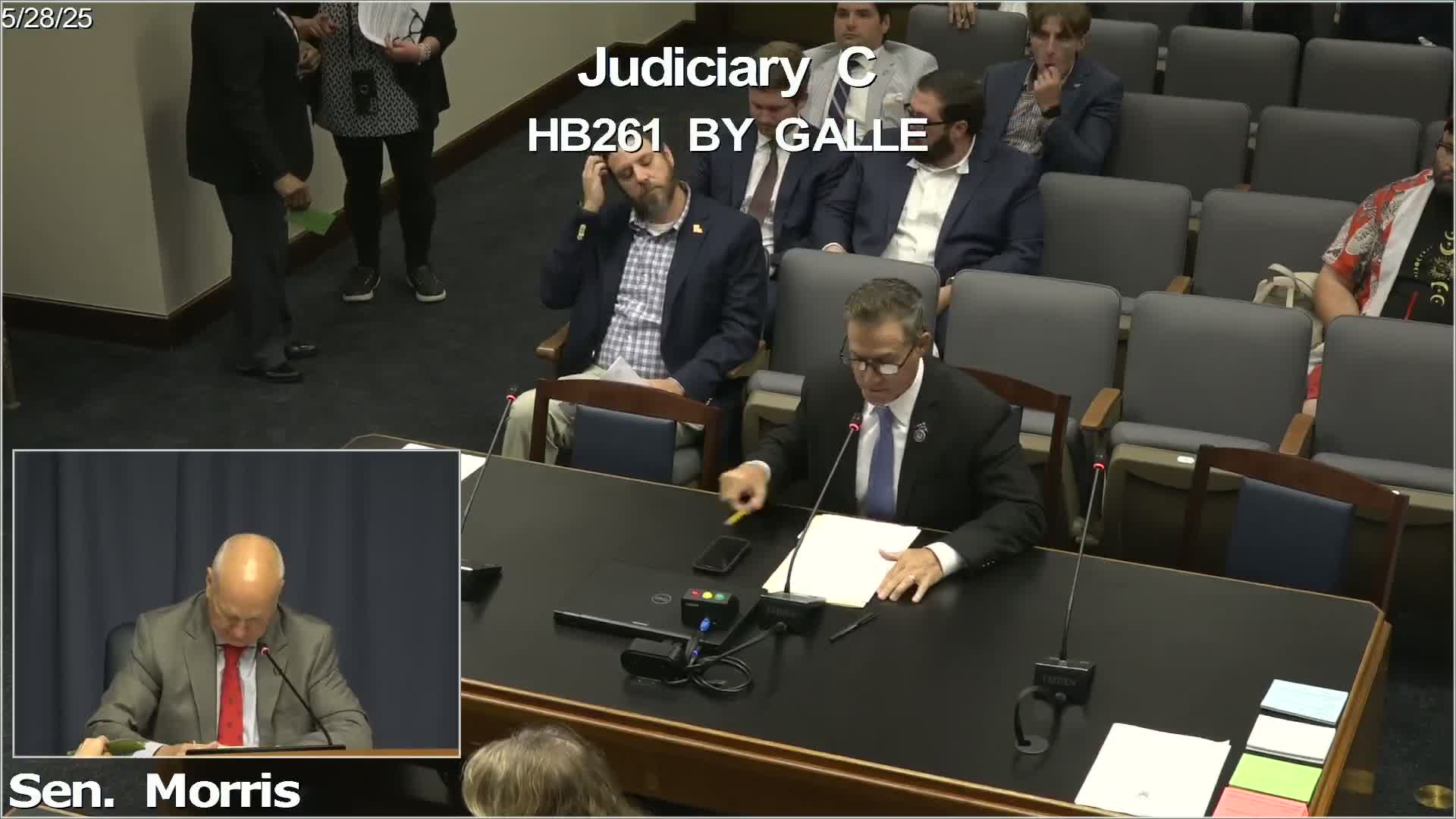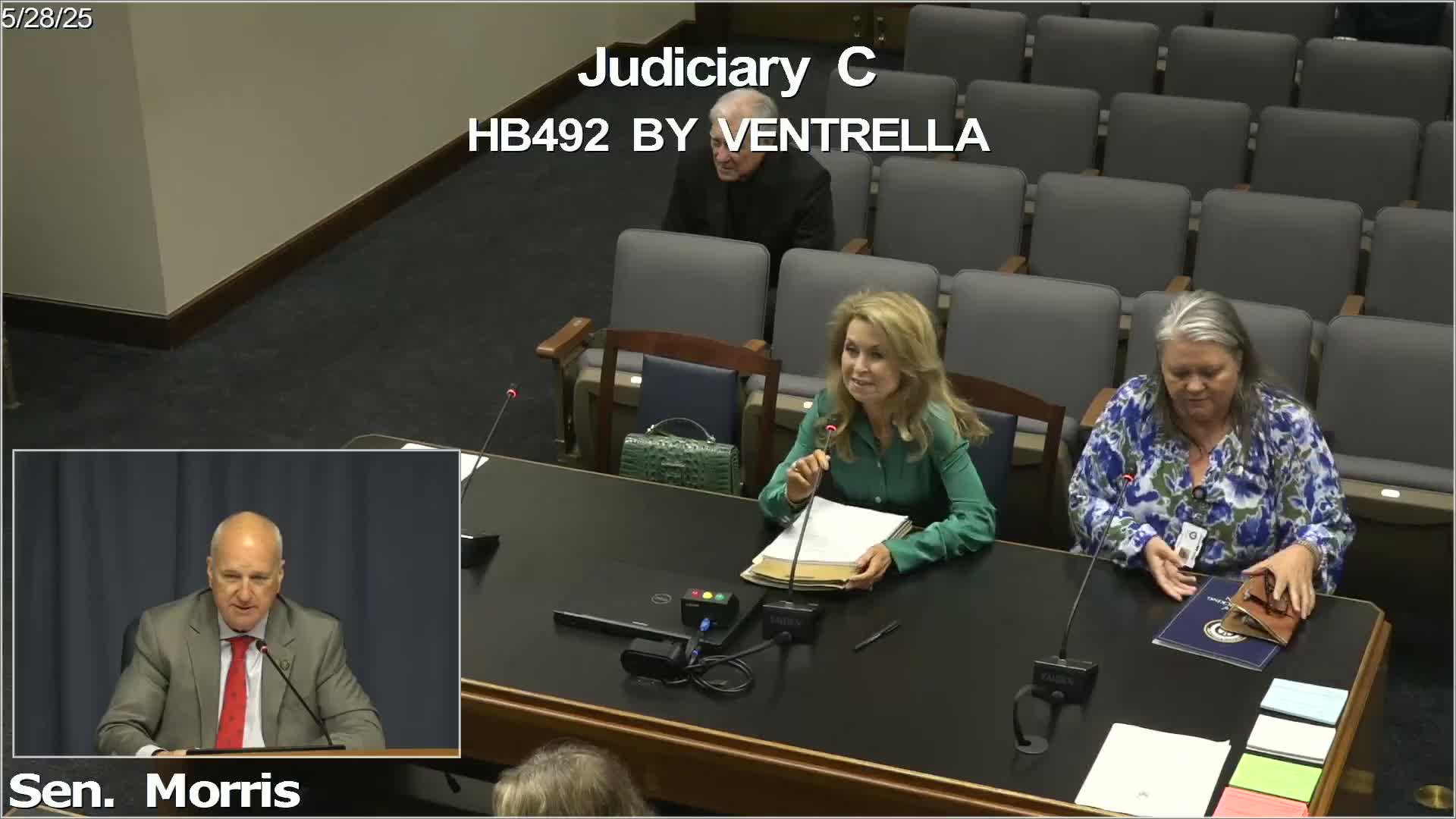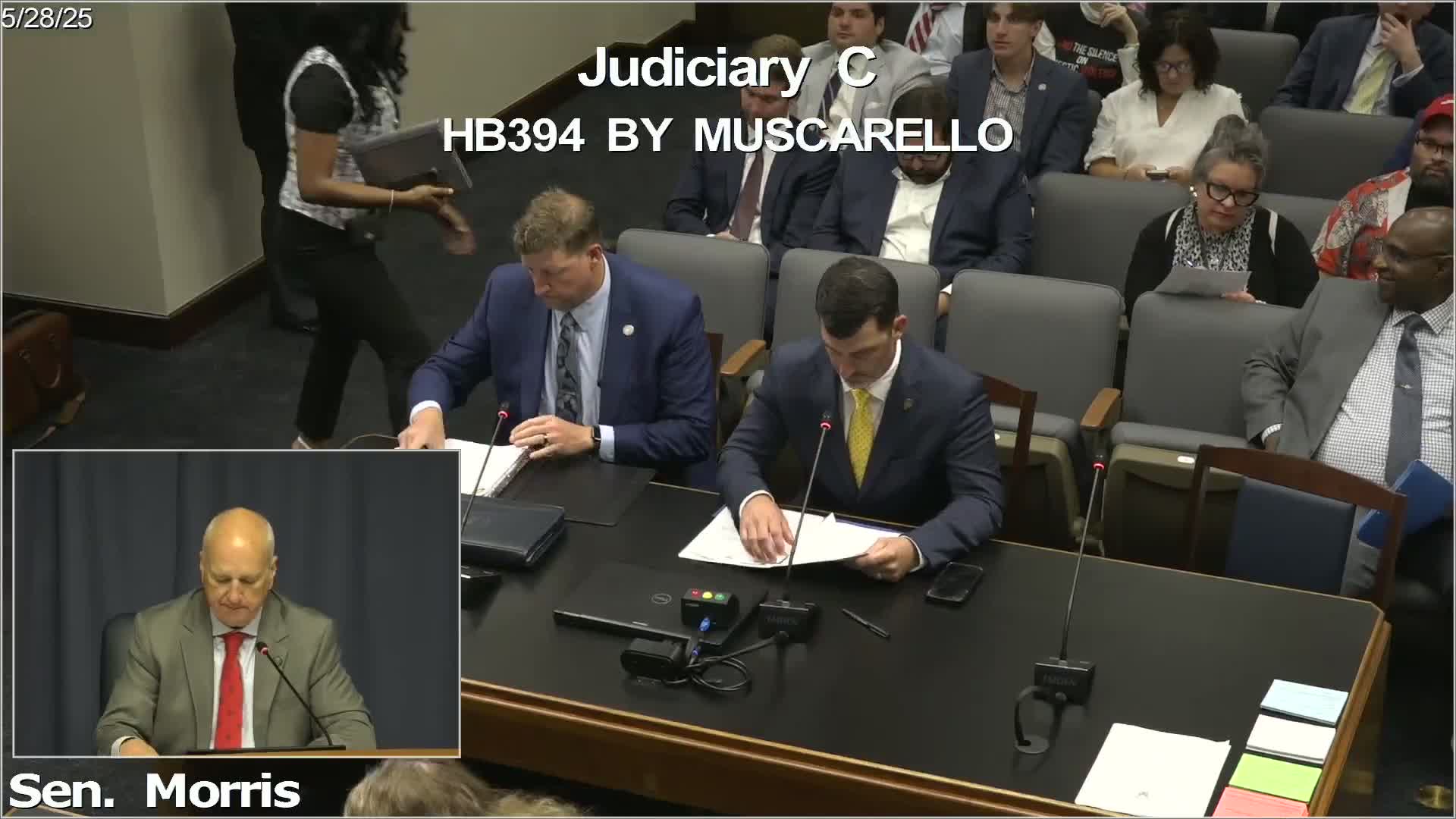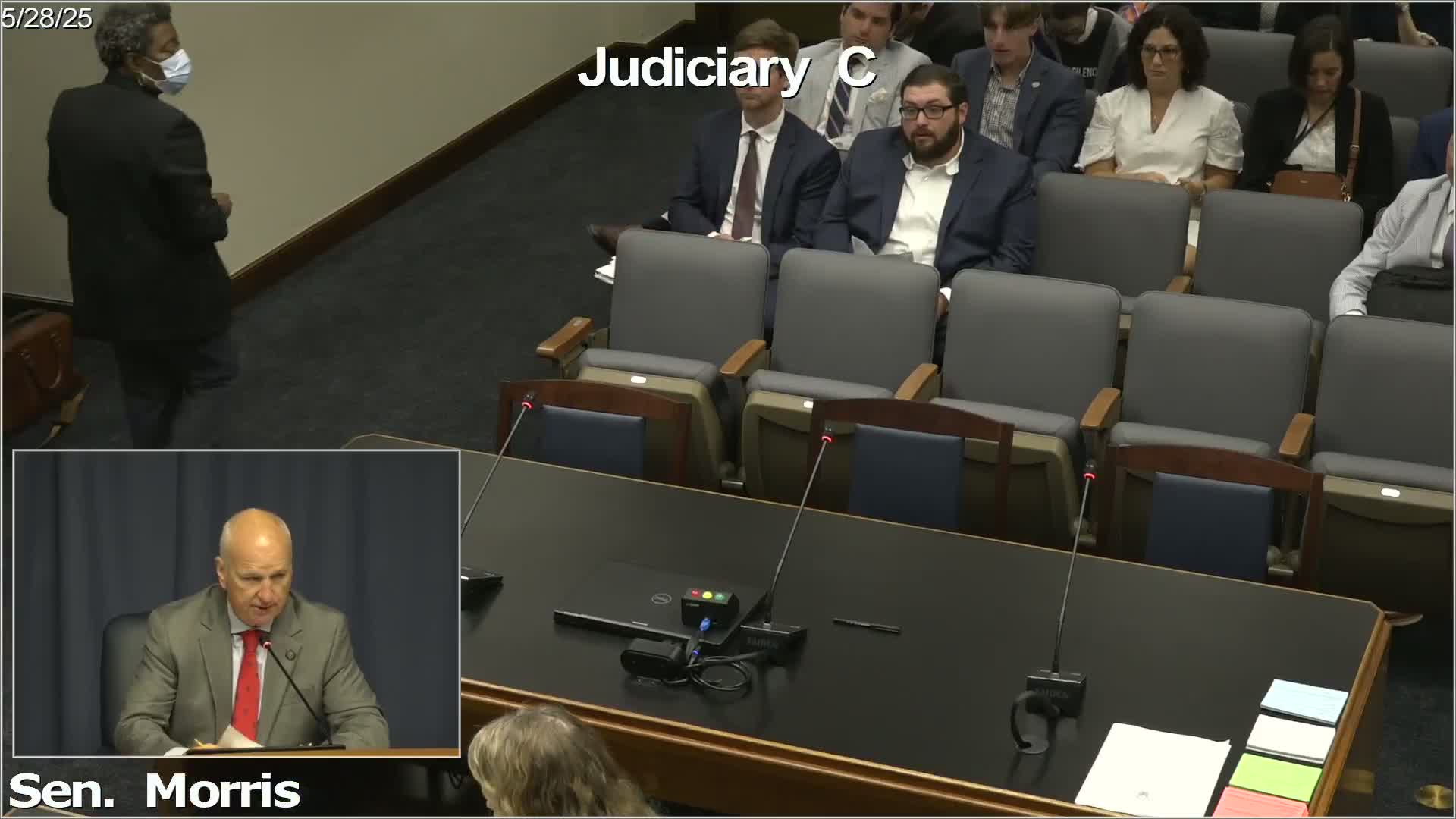Article not found
This article is no longer available. But don't worry—we've gathered other articles that discuss the same topic.

Committee advances bill allowing law enforcement to mitigate 'nefarious drones' with exceptions for parades and productions

Committee backs bill to expand and reallocate victim services funding paid by offenders

Senate panel clarifies execution procedures and witness rules in bill backed by governor's office

